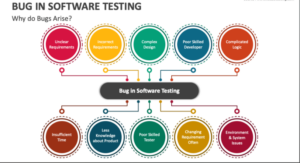Looking to start a career in Quality Assurance (QA)? Don’t miss the opportunity to join a QA Online Training Free Demo Class! This demo class provides an excellent introduction to the world of software testing, covering key topics like manual and automated testing, defect tracking, and industry tools like Selenium and JIRA. Whether you’re a beginner or looking to advance your skills, this free session offers valuable insights into how QA training can shape your career. Reserve your spot now to experience hands-on learning from expert instructors and prepare for a future in QA.
What is QA Online Training?
QA online training is a structured program designed to teach individuals the concepts, techniques, tools, and best practices of quality assurance in software development. These courses are delivered via online platforms, allowing students to learn at their own pace from anywhere in the world.
QA training covers various testing methodologies, including manual and automated testing, test case design, bug tracking, test management, and the use of popular testing tools like Selenium, JIRA, and Postman. The courses are tailored for beginners, intermediate learners, and even advanced professionals looking to upgrade their skills.
Key Components of QA Online Training
Introduction to Quality Assurance: This module covers the basics of QA, including its purpose, principles, and role in the software development process. It provides an overview of different testing types, such as functional, non-functional, regression, and performance testing.
Software Development Life Cycle (SDLC) and Testing Life Cycle (STLC): Understanding SDLC and STLC is crucial for QA professionals. These modules explain the stages of software development and how testing fits into each phase, from requirements gathering to maintenance.
Manual Testing Techniques: Manual testing is often the first step for beginners in QA. It includes learning how to write and execute test cases, identify bugs, and document test results. Key topics include black-box testing, white-box testing, exploratory testing, and usability testing.
Automation Testing Tools: Automation testing is a core component of modern QA practices. This section introduces tools like Selenium, UFT, and JMeter. Trainees learn to create automated test scripts, execute them, and analyze results to improve testing efficiency.
Test Management and Bug Tracking: Effective test management ensures that testing is thorough and organized. Courses teach students how to use tools like JIRA, TestRail, and Bugzilla to manage test cases, report bugs, and track their resolution status.
Performance Testing: Performance testing helps ensure that software applications meet speed, scalability, and stability requirements under various conditions. Tools such as LoadRunner and Apache JMeter are commonly used in this aspect of QA.
API Testing: As APIs become more integral to software functionality, API testing has gained prominence. QA training covers RESTful API testing using tools like Postman and SoapUI, focusing on validation of request and response structures, authentication, and error handling.
Agile and DevOps Testing Practices: Agile and DevOps methodologies have reshaped the testing landscape. QA online training often includes modules on Agile testing practices, continuous integration (CI), and continuous deployment (CD) pipelines, highlighting the tester’s role in a DevOps environment
Benefits of QA Online Training
Flexibility and Convenience: Online training allows you to learn at your own pace, fitting your studies around your personal and professional commitments. Whether you’re a working professional or a student, QA online training offers the flexibility to schedule learning sessions at your convenience.
Access to Expert Instructors: Many QA online courses are taught by industry experts with years of experience in software testing. Their real-world insights and hands-on training can help bridge the gap between theoretical knowledge and practical application.
Cost-Effective Learning: Compared to traditional classroom training, online QA courses are often more affordable. There are options for free courses, subscriptions, or one-time payments, making it accessible for learners at different budget levels.
Interactive Learning Experience: QA online training platforms frequently offer interactive elements, such as live webinars, virtual labs, forums, and Q&A sessions, which enrich the learning experience and provide opportunities for networking with peers and instructors.
Certifications for Career Advancement: Many QA online training programs offer certificates upon completion, which can enhance your resume and demonstrate your expertise to potential employers. Certifications like ISTQB (International Software Testing Qualifications Board) are particularly valuable in the industry.
Hands-On Practice with Real-World Scenarios: QA training often includes hands-on projects and real-world case studies, allowing you to apply what you’ve learned in a practical setting. This experience is invaluable for understanding the day-to-day challenges faced by QA professionals.
Continuous Learning and Skill Upgradation: The field of software testing is constantly evolving with new tools, technologies, and best practices. Online training allows you to stay updated with the latest trends, ensuring that your skills remain relevant in the job market.
Skills You Will Gain from QA Online Training
Analytical and Critical Thinking: QA professionals need to analyze requirements, design test cases, and identify defects. Training helps sharpen these analytical skills, enabling you to approach testing with a critical eye.
Attention to Detail: Finding bugs and ensuring software quality requires a meticulous approach. QA training enhances your attention to detail, helping you catch even the smallest errors that could impact the end-user experience.
Technical Proficiency in Testing Tools: You’ll gain proficiency in various testing tools like Selenium, JIRA, and Postman. These skills are essential for executing automated tests, managing defects, and improving testing processes.
Problem-Solving Skills: QA training prepares you to troubleshoot issues, understand root causes of defects, and work collaboratively with developers to resolve them effectively.
Communication Skills: Effective communication is crucial for QA professionals, who must articulate test results, defects, and suggestions clearly to developers, managers, and other stakeholders.
Understanding of Agile and DevOps Practices: Familiarity with Agile and DevOps is increasingly valuable in QA roles. Training covers these methodologies, helping you integrate testing into continuous development and deployment cycles.
Documentation Skills: Proper documentation of test cases, test scripts, and defect reports is a critical aspect of QA. Online training teaches you how to create detailed and structured documentation that aids the testing process.
Career Opportunities After QA Online Training
- QA Tester: Entry-level QA testers are responsible for executing test cases, identifying defects, and ensuring that the software meets specified requirements.
- Automation Tester: With skills in automation tools like Selenium, you can work as an automation tester, creating scripts that reduce the time and effort required for testing.
- QA Analyst: QA analysts focus on analyzing the test process, identifying areas for improvement, and ensuring that the testing aligns with the overall project goals.
- Performance Tester: Performance testers specialize in evaluating the application’s speed, stability, and scalability under different conditions using tools like LoadRunner.
- API Tester: API testers validate that the APIs function as expected, ensuring data exchange between different software components is seamless and error-free.
- QA Lead/Manager: As you gain experience, you can move into leadership roles, overseeing the entire testing process, managing teams, and ensuring that quality standards are met.
How to Choose the Right QA Online Training Program
- Evaluate Course Content: Ensure the course covers essential topics such as manual and automated testing, testing tools, and real-world projects that offer practical exposure.
- Check Instructor Credentials: Look for courses led by industry experts with hands-on experience in QA. Instructors with a strong background can provide valuable insights and mentorship.
- Read Reviews and Testimonials: Reviews and testimonials from past students can provide a sense of the course quality, teaching style, and overall learning experience.
- Assess Flexibility and Support: Opt for courses that offer flexible learning schedules and good support systems, including forums, live sessions, and access to instructors for queries.
- Certifications Offered: Certifications can add significant value to your resume. Ensure the course offers recognized certifications that are well-regarded in the industry.
By choosing an industry-focused course like the one offered by H2K Infosys, learners can enjoy a curriculum crafted with input from industry experts, ensuring skills and knowledge that match the needs of today’s QA roles.
QA Online Training Free Demo Class | QA Tutorial for Beginners | QA Training Videos
Conclusion
QA online training is an excellent pathway for anyone looking to enter or advance in the field of software testing. With its flexibility, expert instruction, and hands-on learning opportunities, it equips you with the skills necessary to excel in a QA role. By understanding the essentials of QA, practicing with industry-standard tools, and earning valuable certifications, you can position yourself for a successful and rewarding career in quality assurance.
Ready to take your career in quality assurance to the next level? Enroll in H2K Infosys’ QA Online Training and unlock your potential in the world of software testing. Sign up today and start your journey toward becoming a certified QA professional.































5 Responses
Nice post thank you for sharing.
Nice blog post its really useful to me and I want better brief explaining for blogs thankyou.
Looking for software quality assurance training courses online.Training will be provided for QA Software